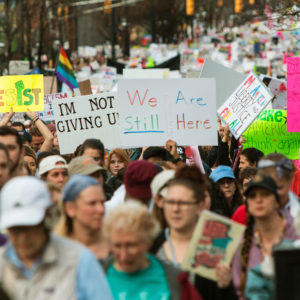Editor’s Note: For another viewpoint, see Counterpoint: Is President Trump Solely to Blame for the Lack of Civility in Politics?
As America heads full bore into one of the most significant (and possibly contentious) elections in several years, many Americans are worried about the lack of civility in the current political discourse.
Although the current state of civility in U.S. politics leaves much to be desired, when one takes a historic look at civility in U.S. politics (or lack thereof) voters should be reassured that our current plight is more the norm than the exception.
Consider that from the very beginning of our federal republic, civility in American politics has ebbed and flowed. From the nasty and personal battles between the Federalists and the Anti-federalists to the fracturing of the country (literally) during the Civil War, American politics has been far from friendly, much less civil, on several occasions.
However, the lack of present political civility makes many voters worried that civility in U.S. politics is dead as a doornail. In one way, these voters’ concerns are well warranted. Why? Because, today, unlike in eras past, the sheer amount of political power at stake is unprecedented in American history. With more power at stake, the civil discourse is more apt to descend deep into the abyss of incivility.
In 2020, the federal government is more powerful than ever before. The federal government is spending more money than ever, bringing in more revenue than ever, and has its hands in more aspects of American society than ever. This means that politicians, lobbyists, bureaucrats and all others affiliated with an outsized federal government realize much is at stake, at least in terms of their personal power.
Unfortunately, those whose livelihoods are directly related to the growth of federal government and those who are dedicated to scaling back the size and scope of the national government are caught in a bitter battle, civility be damned.
When one adds the advent of social media and the 24/7 media circus to the equation, the likelihood of a thriving civil discourse becomes even less likely. In the pre-Twitter/Facebook political world, most Americans engaged in somewhat cordial political discussions on a face-to-face basis. In today’s digitally dominant discourse, it is far easier to engage in incivility when one is posting (anonymously) online.
In other words, in-person interactions (which are becoming more the exception than the norm) breeds more civility than posts on a digital bulletin board.
However, this is not to say that the problem of incivility is primarily due to the advent of impersonal technological communications advancements. Could this political incivility also be a reflection of a greater cultural coarseness that has overtaken many American institutions? One could make a very valid argument that indeed this is the case.
Anecdotally, in my brief lifetime, I can unequivocally say that I absolutely believe this to be true. In almost every facet of American culture and society, the zeitgeist is moving from cordiality to coarseness. Music, movies, cable television, the Super Bowl halftime show, etc. demonstrates that America is embracing crass over courteous. Why would American politics be immune from this cultural degradation? It is not.
Is it possible to turn the tide on the tsunami of incivility that threatens to wash away and drown out civility in American politics? Of course, nothing is 100 percent predetermined — at least not in the topsy-turvy realm of American politics.
In fact, there are many ways that our civility schism can be bridged. For instance, if the federal government’s power is reduced, and power is returned to the local level (where it rightfully belongs), the odds of a bitterly divided and uncivil political discourse is less likely.
Federalism, which is a foundational principle of the American experiment, is a remedy for the lack of civility that has overwhelmed the political discourse because it would make political battles much less all-or-nothing events. As of now, the more our political disagreements take place at the national level, more angst and incivility is likely to occur throughout the country.
Although federalism is not the cure-all for our present lack of civility, it would almost assuredly tone down the national rhetoric that pits American against American, and rapidly devolves into incivility.
Of course, we as Americans, also have the ability to reject incivility in our political discourse. After all, the social fabric of the nation is woven by the will of the people and ought to reflect our deeply held values, including political civility.

